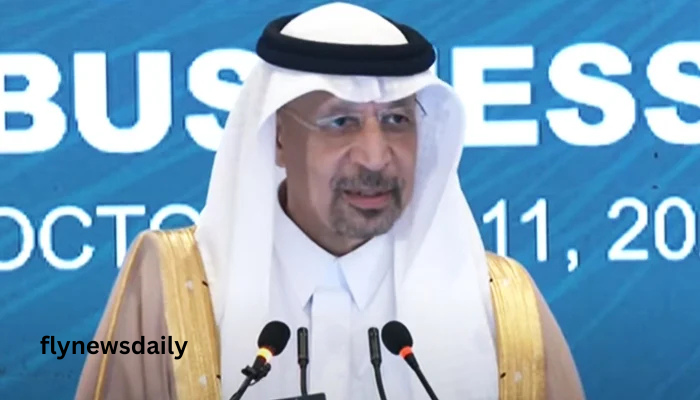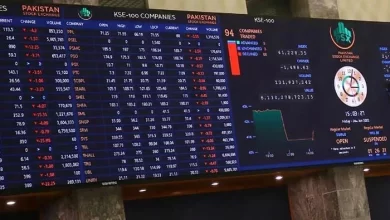
Introduction to Minister Al-Falih’s Vision
Khalid Al-Falih, the minister of investments, has become a key player in changing Saudi Arabia’s economic environment. His leadership is focused on bringing Saudi Arabia into a period of diversified prosperity, lowering reliance on oil, and building a strong, sustainable economy. He has a clear vision for the future. Leading several reforms and initiatives to draw in foreign capital, support regional businesses, and encourage entrepreneurship are all part of Al-Falih’s responsibilities. Saudi Arabia is progressively establishing itself as a major actor in the world economy thanks to his efforts.
Saudi Arabia’s Economic Evolution
The main source of the country’s income throughout history has been oil exports, which have a significant impact on Saudi Arabia’s economy. However, the nation has to diversify its economy quickly due to shifting global energy dynamics and changes in oil prices. Early on, Al-Falih acknowledged this difficulty and supported efforts to lessen the country’s dependency on oil while fostering other industries such as manufacturing, tourism, and technology. This change represents a turning point in Saudi Arabia’s economic history.
Vision 2030: A Blueprint for Growth
One of the main focusses of Minister Al-Falih’s work is Saudi Arabia’s Vision 2030, a comprehensive plan aimed at completely transforming the country’s economy. With a focus on diversification, Vision 2030 seeks to establish a dynamic society and a strong economy. From encouraging foreign investments to establishing new sectors, Al-Falih is a major force behind the measures described in this vision. Infrastructural development, education system enhancement, and job possibilities expansion—particularly for women and youth—are other key objectives of Vision 2030.
Investment Opportunities in Saudi Arabia
For investors, Saudi Arabia offers a plethora of options in everything from infrastructure and real estate to technology and healthcare. The administration has endeavoured to establish a conducive atmosphere for both foreign and domestic investors, guided by Al-Falih. Owing to continuing changes, there has been a significant increase in foreign interest in the energy, transportation, and entertainment sectors. Additionally, the creation of special economic zones, or SEZs, offers alluring incentives to investors hoping to profit from Saudi Arabia’s expanding market.
Energy Sector Reforms
The energy industry is among the most noteworthy areas of change led by Al-Falih. The Saudi economy still depends heavily on oil, although there has been a noticeable change in focus towards the development of renewable energy sources, especially solar and wind power. This shift is essential to ensuring that the nation satisfies international environmental regulations and maintains its position as a leader in the world energy market. Al-Falih’s tactics guarantee that Saudi Arabia will continue to be a major player in the energy sector even as the globe shifts to greener options.
Saudi Sovereign Wealth Fund (PIF)
Under Minister Al-Falih’s leadership, the Public Investment Fund (PIF) has experienced exponential growth, ranking among the world’s greatest sovereign wealth funds. Major national initiatives are advanced with the help of the PIF, which also invests in foreign businesses that support Saudi Arabia’s long-term objectives. The country’s capacity to finance the main projects of Vision 2030 has also been strengthened by Al-Falih’s PIF management, thereby securing Saudi Arabia’s economic future.
Infrastructure Development
Saudi Arabia is undergoing an unparalleled phase of infrastructure development, exemplified by ambitious initiatives such as NEOM and The Red Sea Project. These developments are anticipated to support regional economic growth in addition to strengthening the tourism and entertainment industries. The nation’s dedication to being a top international investment destination is demonstrated by the development of new cities, transit systems, and high-tech clusters.
The Rise of the Saudi Stock Market
Reforms spearheaded by Al-Falih have contributed significantly to the notable rise of the Saudi stock market, Tadawul. Increased foreign investor trust and the addition of Saudi companies to global indices have bolstered market confidence. With more liquidity and openness as a result of these reforms, Tadawul is now recognised as one of the major financial centres in the area.
Saudi Arabia’s Global Economic Partnerships
Throughout his presidency, Al-Falih has made a determined effort to increase Saudi Arabia’s international commercial ties. Saudi Arabia is expanding its economic horizons by interacting with global organisations like the G20 and promoting bilateral deals with nations like the US and China. These alliances are essential to sustaining consistent economic expansion and drawing in foreign capital.
Impact of Al-Falih’s Policies on Small Businesses
Encouraging small and medium-sized businesses (SMEs) is a key component of Al-Falih’s economic plan. The government has aided in the growth of SMEs by providing grants, low-interest loans, and other financial incentives. This emphasis on entrepreneurship guarantees that Saudi Arabia’s economy is not exclusively dependent on big businesses, which is essential for job generation and economic diversification.
Technology and Innovation in Economic Growth
Saudi Arabia is developing into a centre for technical innovation in keeping with Vision 2030. New growth prospects are being created by investments in research centres, innovation hubs, and tech companies. Saudi Arabia’s position as a leader in the Middle East’s digital revolution has been cemented by the arrival of major IT companies drawn by Al-Falih’s policies.
Sustainable Economic Growth and Environmental Policies
Among the biggest problems facing modern countries is striking a balance between environmental sustainability and economic growth. At the forefront of advocating for laws that support sustainable growth has been Minister Al-Falih. The Saudi Green Initiative and other such programs are essential to lowering the nation’s carbon footprint while fostering economic growth.
Education and Workforce Development
The development of Saudi Arabia’s workforce is a crucial aspect of its economic transition. The core of Al-Falih’s policy is educational reform, which aims to match the workforce with the demands of a contemporary, diverse economy. The goal of these reforms is to give Saudi nationals the tools they need to prosper in cutting-edge fields including engineering, technology, and healthcare.
Enhancing the Tourism Sector
One of the most potential industries for economic diversification is quickly emerging: tourism. Saudi Arabia hopes to draw millions of tourists from around the world each year by making significant investments in cultural and leisure initiatives. The strategy’s main pillars include the emphasis on historical landmarks, contemporary entertainment, and the development of tourism related to the Hajj and Umrah.
Challenges and Future Prospects
Under Al-Falih’s direction, Saudi Arabia has advanced significantly, although difficulties still exist. Persistent dangers include environmental problems, geopolitical difficulties, and uncertainty in the global economy. But Vision 2030’s groundwork and Al-Falih’s proactive initiatives provide a strong framework for overcoming these obstacles and attaining long-term economic growth.
Conclusion: A New Era of Growth for Saudi Arabia
Under the direction of Investment Minister Khalid Al-Falih, Saudi Arabia is poised to experience unparalleled economic expansion. His emphasis on variety



